Wau an Namus - an oasis in a volcanic crater
Wau an Namus is an extinct volcano crater located in one of the most remote places in Libya, deep in the Sahara desert, almost in its very geographical center. The volcanic field is about 4 km wide, and it is surrounded by black ash deposits 10-20 km wide, which stand out brightly against the yellow desert. At the bottom of the caldera is a 120-meter ash cone - in fact, the source of the ash - as well as three small salty colored lakes.
(Total 12 photos)
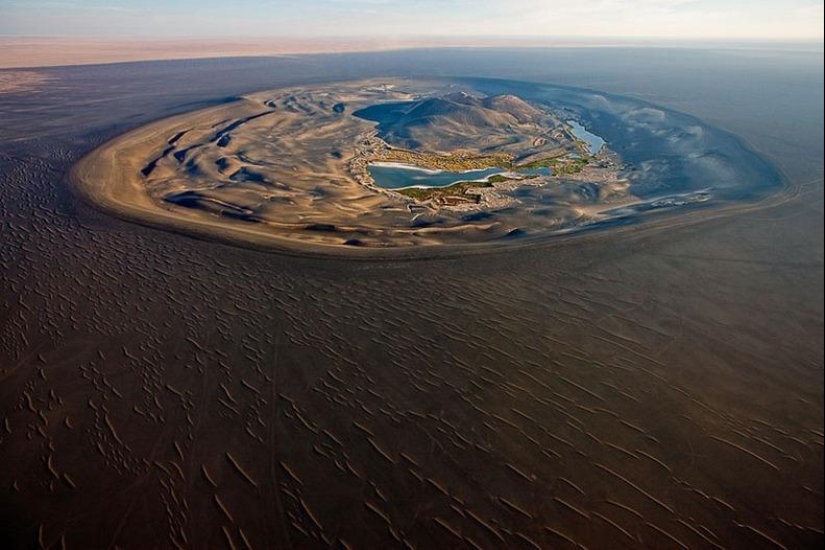

1. The name Wau-an-Namous means "Oasis or Mosquito Crater" because the surrounding shallow lakes are teeming with mosquitoes. So for a visit there, an anti-mosquito remedy is simply vital.
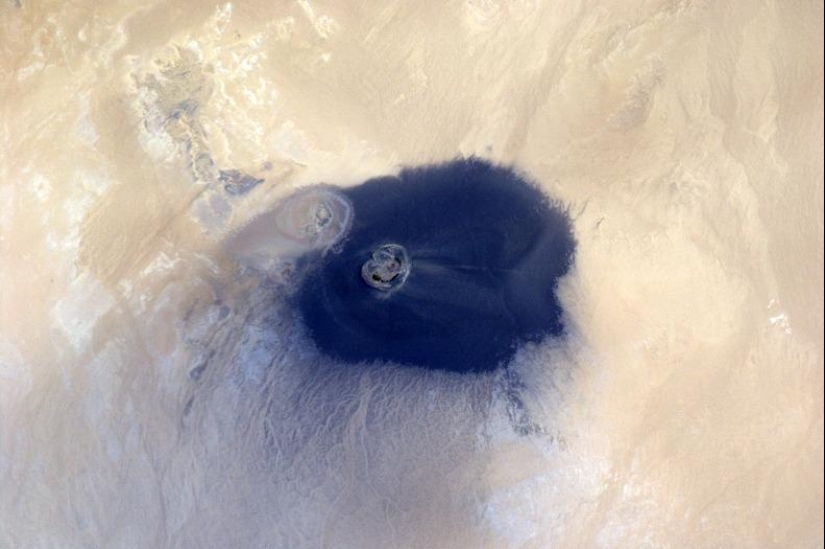
2. A source of drinking water, located near and at the same height as the salt lakes, is quite common in the Sahara.
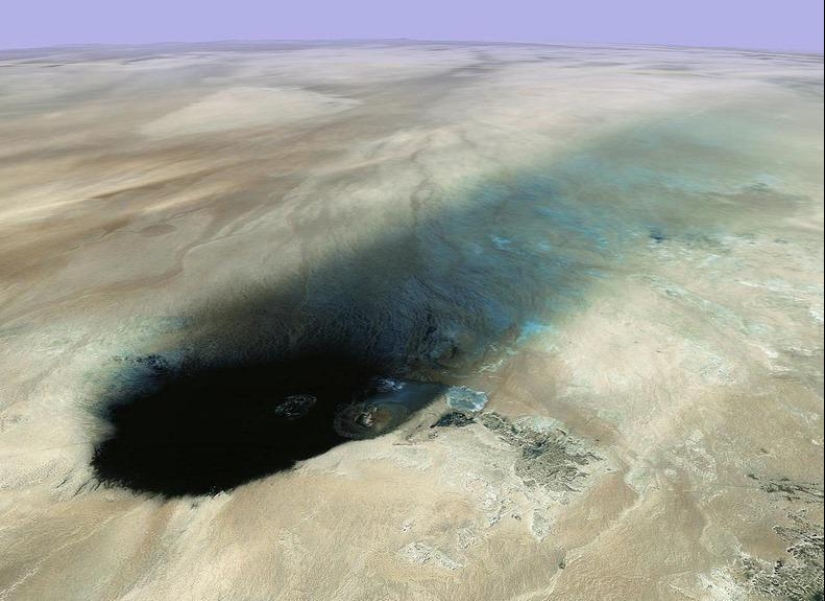
3. A scarce source of water feeds the lakes and was also used by travelers in the old days.
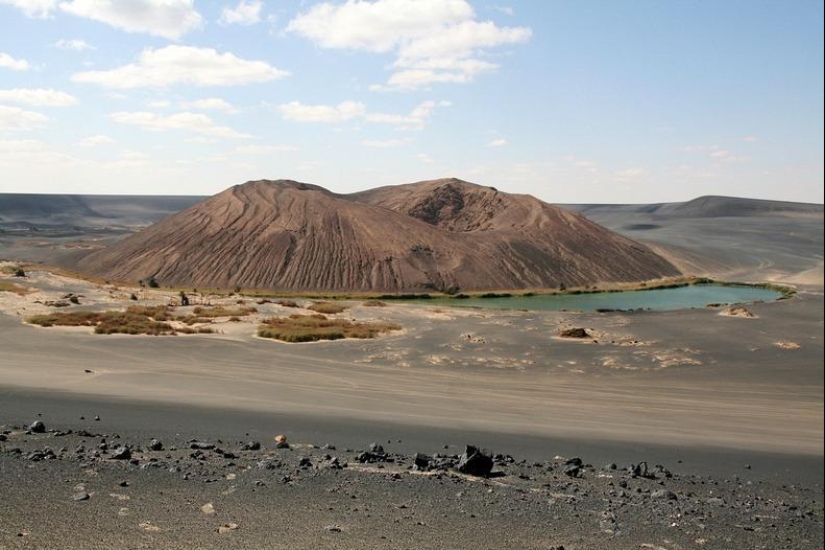
4. Due to the presence of fresh water in this remote volcano, Wau an Namus has always been considered an important source of water for caravans on the way from Wau el Kabir to Rebiana and the oasis of Kufra, further southeast Libya.
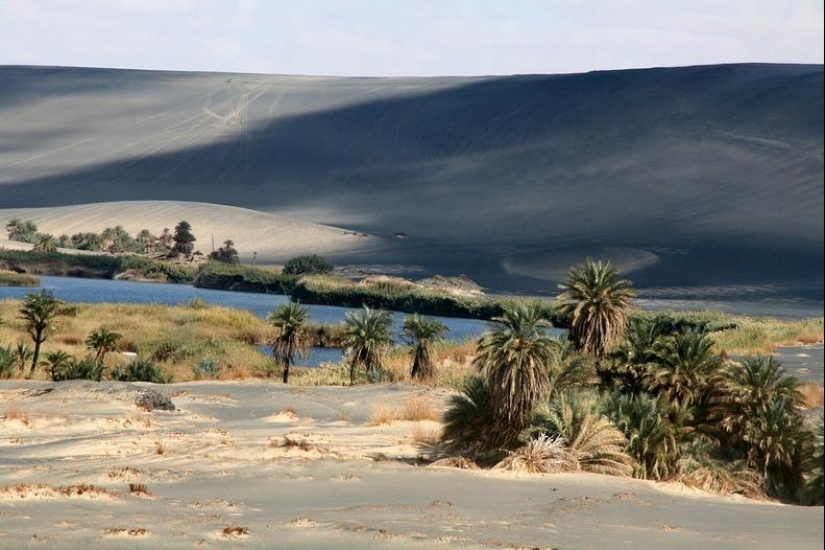
5. This picturesque volcano was first described in the works of Carl Moritz von Bermann (1862) and Gerard Rohlfs (1881), although they had never been to this place.
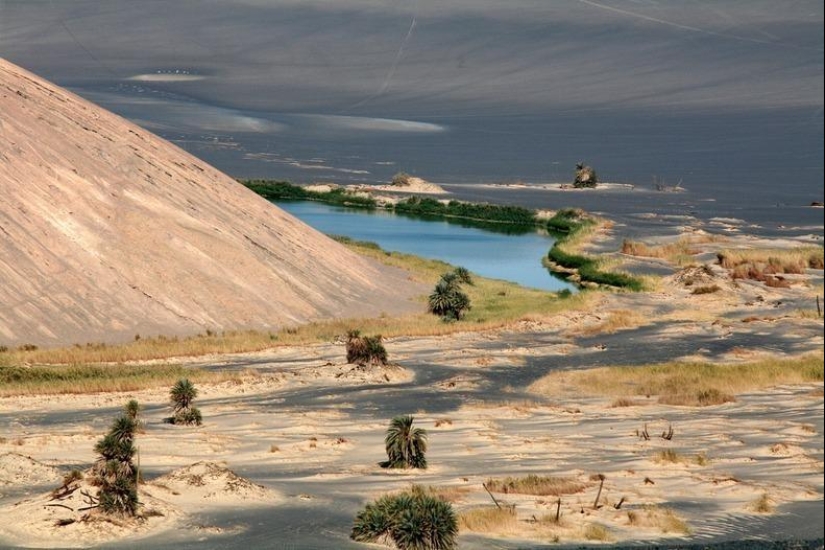
6. Probably the first European at the volcano was the Frenchman Lauren Lapierre (1920).
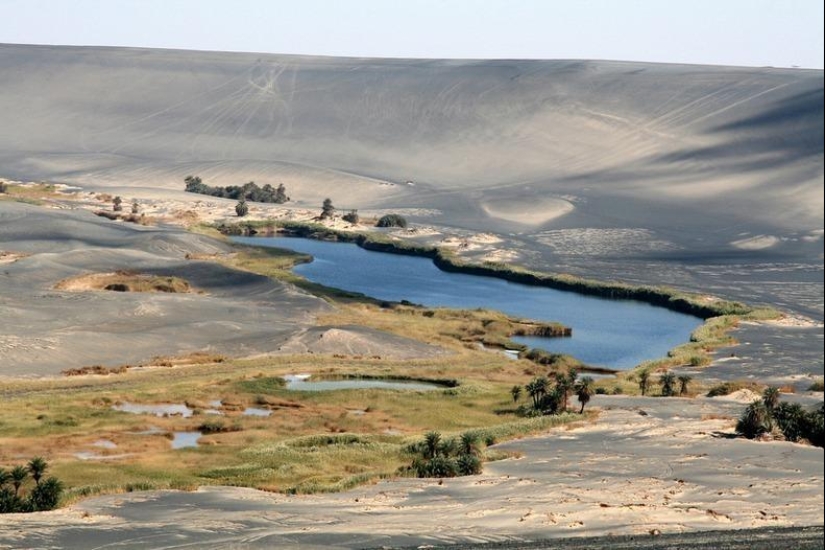
7. Lapierre was a military officer who was taken prisoner and led to Kufra through Wau el Kabir and Wau an Namus. When he was released a few years later, he was able to describe the place.
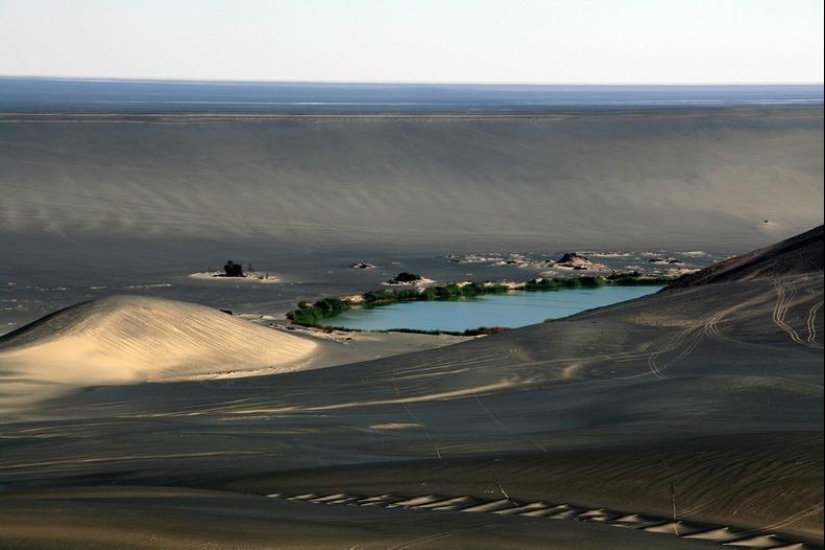
8. About 11 years later, Italian geologist Ardito Desio reached Wau an Namus on his famous long camel journey.
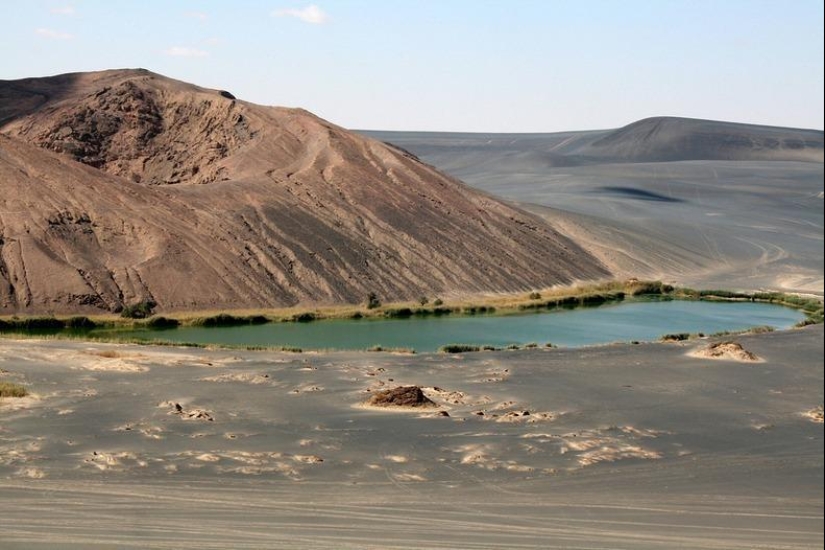
9. During his geological expedition, Desio also visited Jala, Marada, Wau el-Kabir, Tmassa and Kufra. He published the first geological description of the volcano in 1935.
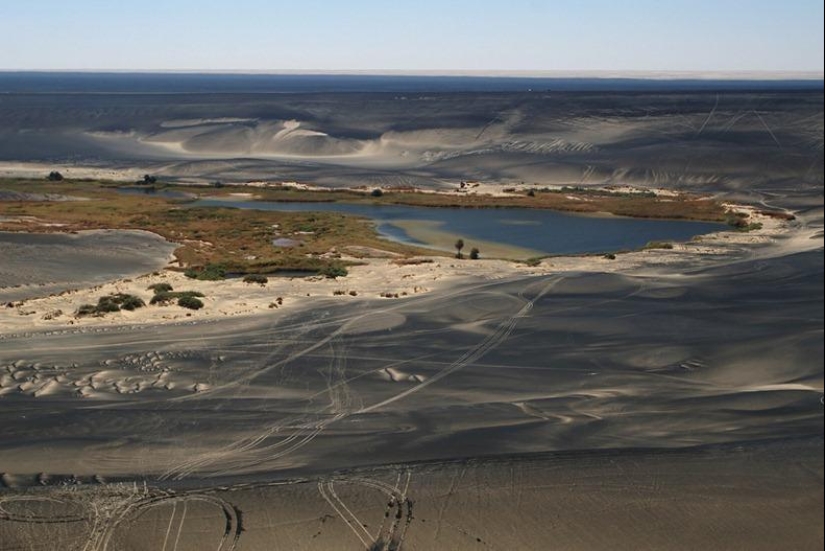
10. After World War II, several scientists visited the volcano, including geographer Nikolaus Benjamin Richter, who examined the volcano several times and published a book about his journey in 1960.
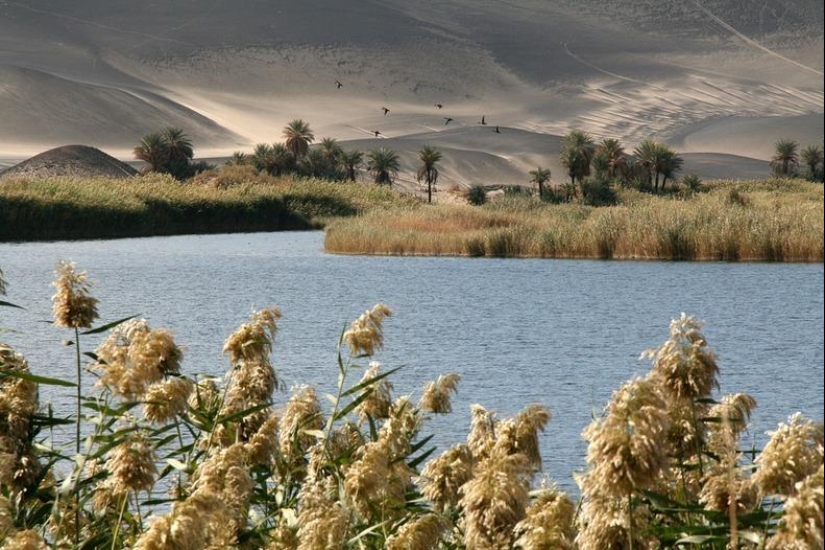
11. Since then, the volcano has been visited more than once by geologists, geophysicists and tourists.
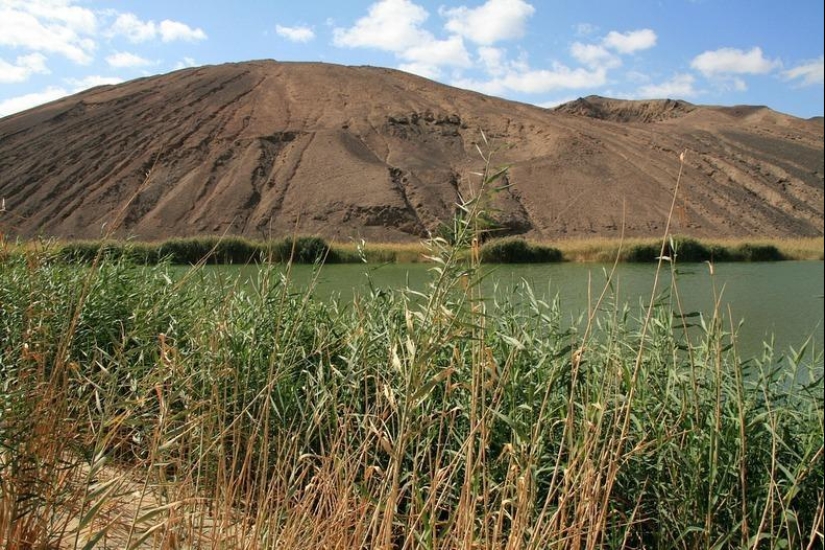
12. Over the past 20 years, Wau al-Namous has become one of the main attractions that attract tourists who visited the Libyan desert in general and the Fezzan region in particular.
Keywords: Volcano | Crater | Libya | Lakes | Desert
Post News ArticleRecent articles

It's high time to admit that this whole hipster idea has gone too far. The concept has become so popular that even restaurants have ...

There is a perception that people only use 10% of their brain potential. But the heroes of our review, apparently, found a way to ...
Related articles

Yellowstone is the first national Park in the world and also the largest of all national parks in North America. For nearly 150 ...

Old things have a special charm, although not everyone thinks so. But photographer Kati Dimoff from Portland occasionally searches ...

Ghadames, known as the "pearl of the desert", is located in an oasis in the south-west of Libya (the historical region of ...

New Year's is a time to surprise and delight loved ones not only with gifts but also with a unique presentation of the holiday ...